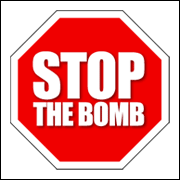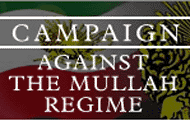Wie kritisch der Blick ist, den man bei den Vereinten Nationen auf die Islamische Republik wirft, macht der Vertreter von UNICEF im Iran nun deutlich. Christian Salazar ist ganz aus dem Häuschen, weil die Mullahs sich so hervorragend um ihre Kinder kümmern:UN-Organisationen wie das Kinderhilfswerk Unicef, das UN-Entwicklungsprogramm und das UN-Flüchtlingshilfswerk hätten vorsichtig signalisiert, dass weitere Sanktionen ihre Arbeit eher erschwerten, so Pflüger.
According to the UNICEF representative, Iran is considered to be in a favorable situation with regard to basic education and gender equality. However, the agency believes that more attention should be paid to the conditions prevailing in some of the country's deprived local communities.Es ist nicht zu glauben, dass irgendwer auf die Idee kommen könnte, den Iran dafür zu loben, dass er beide Geschlechter gleich behandeln würde. Schließlich müssen werden auch Kinder dazu gezwungen, den repressiven Kleidungsvorschriften zu folgen. So kann man nur bei UNICEF sein.
Gender inequality is considered as one of the most important legal challenges children, girls in particular, are facing in the majority of developing countries.
Was die Bildung im Iran betrifft, kann man davon überzeugt sein, dass den Kindern tatsächlich einiges beigebracht wird und dass die Mullahs viel Geld darauf investieren, ihren Kindern die Welt zu erklären. Mit Sicherheit möchte man auch im Krieg nächsten Krieg gerne tausende Kinder an die Front schicken, damit sie sich dort einen Platz im Paradies verdienen können.
Unter der Überschrift: "Iran Educates Children to 'Seek Martyrdom'", wird beschrieben, was man in iranischen Schulen lernt:
Nach den oben erwähnten Erklärungen der iranischen Sektion von UNICEF, sollte man den Laden dichtmachen. Eine Organisation, die sich dafür einsetzt, dass man im Iran weiter Kinder inhaftieren kann, sollte es am besten gar nicht geben.Today's Iranian leadership is quite unpopular with its growing younger generation -- the Mullahs are attempting to reclaim this group one textbook at at a time.
This is becoming a common scene in Iran. Pro-democracy Protests against the ruling regime. Just last weekend Tehran University students waved signs that said "live free or die."
In some ways, this is the new face of Iran-- 70 percent of the population is under the age of 30. Many of these Iranians are hungry for the kind of freedoms Americans enjoy. But the Iranian government has other ideas.
"Imagine 225,000, 250,000 even 100,000 kids who have been taught to hate America, hate the West, get ready for martyrdom," Shayan Arya said.
Shayan Arya's family left Iran when he was a teenager. He says the government's educational curriculum teaches children as young as first grade to prepare for war and seek martyrdom.
"You are responsible for learning it--you get tested on it, you have to study it, you have to write papers on it, you have to answer to your teachers, he said.
The Institute for Monitoring Peace and Cultural Tolerance recently gave CBN News an exclusive look at some Iranian textbooks. All non-Muslims are portrayed as evil -- especially the U.S. and Israel.
A seventh-grade textbook encourages students to "not cease.until the redeeming message of 'there is no god but Allah' is realized throughout the whole world."
These books also teach war between Iran and the west is inevitable. Iranians must either bring about a global Islamic victory or else.
"Victory is not guaranteed, according to the books. It's either victory or collective martyrdom," said Dr. Arnon Groiss.
Eighth grade texts hammer that message home. One section reads "either we shake one another's hand in joy at the victory of Islam in the world, or all of us will turn to eternal life and martyrdom."
"Gradually they build on it so that by 10th or 11th grade, children should be ready to be martyred," Arya said.
Dr. Arnon Groiss has studied Iran's educational system extensively. He views the Iranian curriculum as extreme even for the Middle East.
"If you're dealing with such people, such a regime, that tries to instill in young children or schoolchildrens' minds the idea of global war to the end, this is frightening," Groiss said. "And you will not find this in Syrian textbooks or Saudi Arabian textbooks or Egyptian textbooks."
The radical message of the Islamic Revolution has fallen on deaf ears for many young Iranians. But president Mahmoud Ahamdenijad isn't giving up without a fight.
He says Iran's educational curriculum has become too secular and must be cleansed.
Ein Kontaktformular, über das man UNICEF erreichen kann findet sich hier: >KLICK<






No comments:
Post a Comment